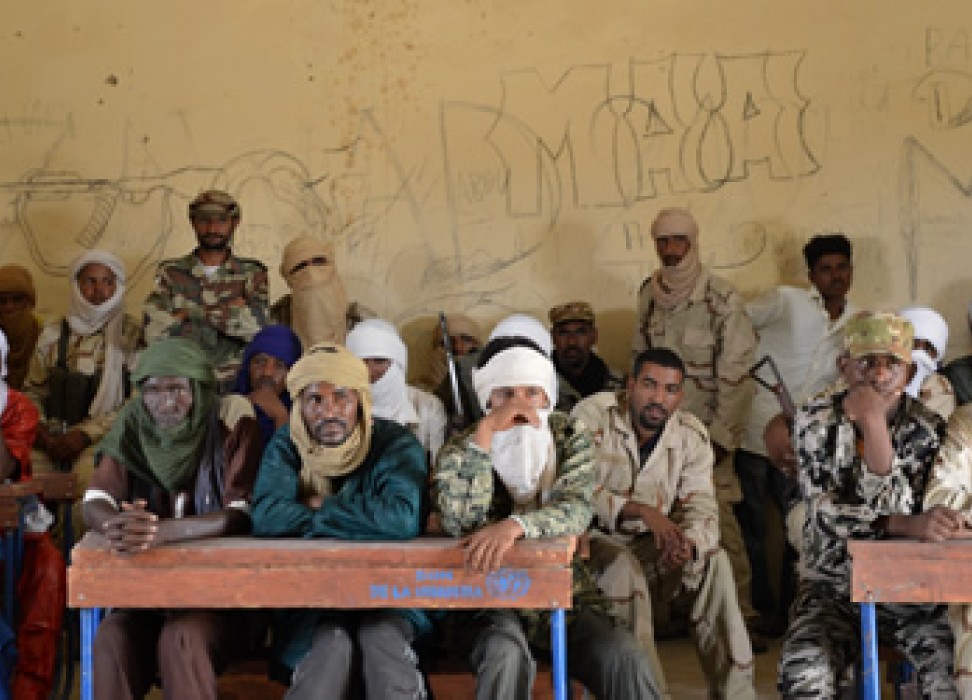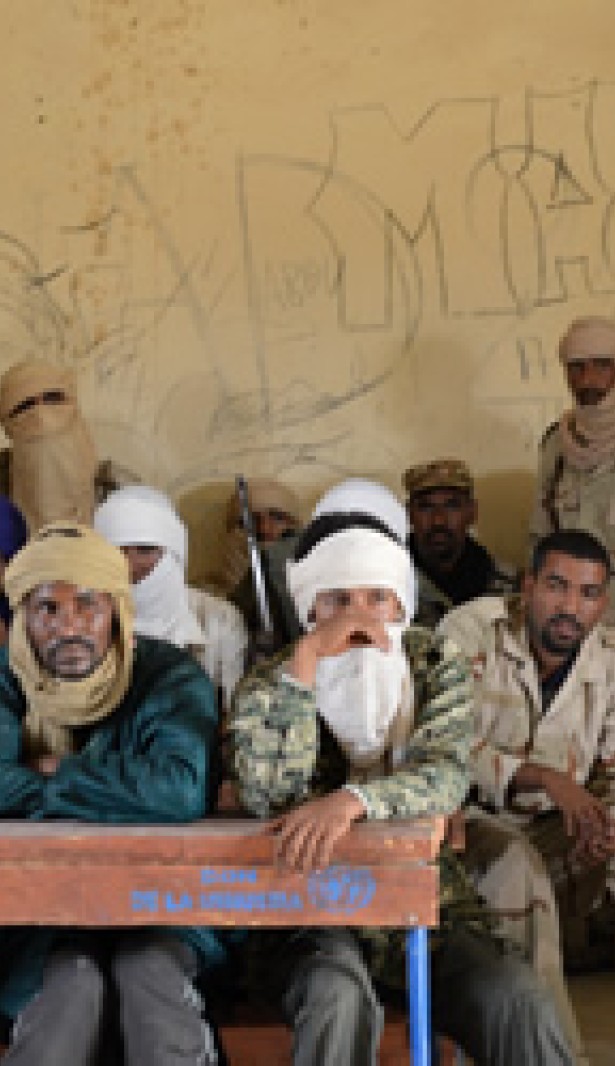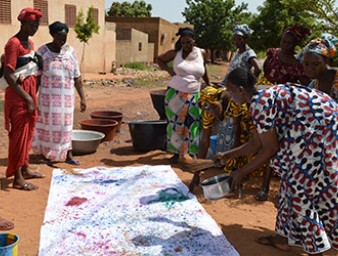Engaging in critical dialogues for human rights and peace in Mali
06 January 2017

The men in the room stared at Arnaud Royer in expectation. The Deputy of the UN Peacekeeping Mission’s Human Rights and Protection Division (HRPD) in Mali had just been asked what good are human rights for them.
The men were members of an armed separatist group in the town of Ber, a small place bordering the desert in northern Mali. They formed one of the many extremist groups that have clashed with government forces in the north of the country.
The men sat in the concrete room, bare, save a desk, some old wooden benches and a battered metal table. They wore combat fatigues and turbans to keep out the ubiquitous dust. Many were armed with rifles. Royer was armed only with his phone.
This he held aloft. Earlier that day he had made a phone call to the Human Rights Division Office in Bamako. With that phone call he found out not only where some of the fighters’ relatives were being held by Government forces, but also that the conditions of their detention were deemed to be adequate following a Human Rights Officer detention-monitoring visit.
“For three years, we have been establishing a mechanism to track arrests up to the trial stage,” Royer said later. “We make sure the detainee’s rights are protected. It is important that armed groups are informed of this and that Human Rights Officers are in contact with armed groups.”
Since 2012, Mali has been embroiled in conflicts in the North, involving anti-government military coalitions and extremist forces. This fighting has led to numerous attacks on civilian, military and government personnel and has caused significant instability, including the displacement of thousands from their homes.
Since 2013, the UN Peacekeeping Mission’s Human Rights and Protection Division in Mali has worked to establish a dialogue with armed groups involved in the conflict. This has been a critical strategy conducted by the office to open up the peace process, said Guillaume Ngefa, the Division’s Director.
“What is important for us is that whoever is arrested, their rights are protected,” he said. “So the fact that Human Rights Officers have been doing this job has given us legitimacy, it has given us a bridge to engage in confidence with different armed groups.”
This trust has led to groups, like the one in Ber, requesting that Human Rights Officers come to their held territories to explain human rights obligations, and to challenge them.
Lieutenant-Colonel Al-Husseini Weld Al Moctar heads the group in Ber. He said his group works with the mission’s Human Rights and Protection Division because they help everyone.
“People have to join and work with them for the sake of harmony among people and so they can love each other,” he said. “Even though the organization is not an Islamic organization, it works the same way Muslims do. We found that it has sympathetic individuals toward our people and toward the weak.”
But engagement does not mean excusing or overlooking the very real human rights violations committed by armed groups, Ngefa said. Human Rights Officers collect and document evidence of violations – such as enforced disappearances or summary executions- and, in many instances, confront the group directly responsible.
For example, Ngefa recalled an incident in 2014, where an armed group was involved in cases of summary execution. He went to the area to lead the investigation, and told the group leaders that there was evidence that what happened could amount to war crimes. The group denied the killings, but the office still made reports.
“The fact is that we have established an environment of trust, because they see us as protecting their rights,” the HRPD Director said. “They know that we may not be neutral, but we are impartial in the sense that we talk to all sides and we disseminate the same message. Human rights must be upheld.”
6 January 2017



